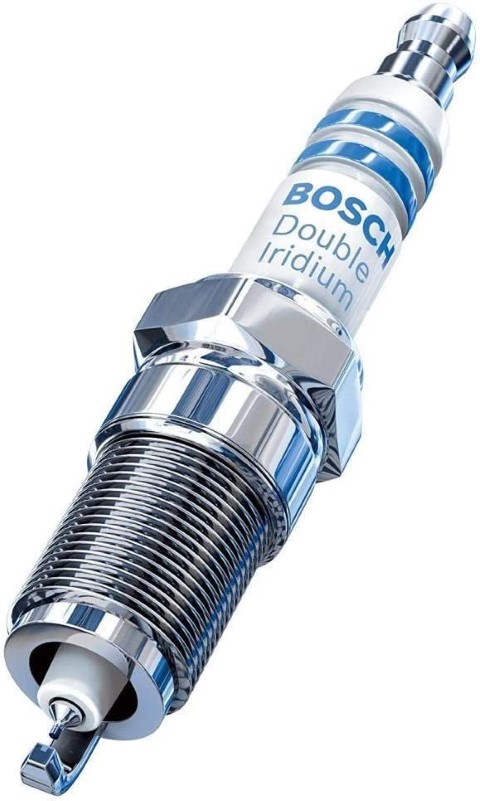 If you have been a vehicle owner for quite some time, then you most likely have encountered a faulty spark plug somewhere along the line. As the name suggests, they are responsible for providing ignition, which produces power in your engine, allowing your car to start. They are relatively inexpensive but are also very important.
If you have been a vehicle owner for quite some time, then you most likely have encountered a faulty spark plug somewhere along the line. As the name suggests, they are responsible for providing ignition, which produces power in your engine, allowing your car to start. They are relatively inexpensive but are also very important.
So, how do you know if your spark plugs need to be replaced?
When our vehicles have difficulty starting, we tend to blame it on the battery. However, batteries are not always the cause. Worn-out spark plugs can also be the culprit. If there’s no spark produced, then there will be no ignition; hence your vehicle won’t move an inch.
Another reason to replace your spark plugs is when your vehicle becomes a rough idle. What does this mean? Well, have you noticed some vehicles–although their engine starts–produce a rattling sound during idling rather than smooth? Bad spark plugs will produce an unwanted sound of rough and antsy idle.
Other cases where you need to replace your spark plugs are if and when your fuel consumption is higher than normal, your engine surges and sometimes misfires, and your vehicle is not accelerating as it should.
So, what makes the best spark plug?
Well, it depends greatly on the engine’s design. Other factors that make the best spark plug are cost and performance.
Unless you’re driving an electric or battery-operated vehicle, your engine is performing a myriad of miniature explosions at each time in order to produce energy. Therefore, having the best spark plug for the job–like the quality of NGK and Bosch spark plugs–is instrumental in keeping your engine operating smoothly.
For older engines
Older engines can benefit from a spark plug line with various plugs designed to fit the engine, and some even burn hotter than the other plugs. If an old engine uses a little oil and you notice the old plugs are covered with deposits, spark plugs with a few heat ranges higher might be the best for the job.
For newer engines
They usually come with multiple-ground electrode spark plugs. They are designed to outlast far higher mileage than your traditional spark plugs. When the time comes for them to be replaced, the best spark plugs you will want to use are the ones with the same specs as the original equipment or OE.
The electrodes in these applications will be made of metals to help prevent easy wear. As a result, they will usually last towards 30,000 miles or 48,000 km.
What are the key features of the best spark plugs?
Platinum and multi-ground electrode plugs are offered by many spark plug manufacturers for vehicles that didn’t come with them. Deciding whether they are the best plug for your vehicle may depend on your needs and budget.
There are plugs that cost at least two times more than conservative plugs, and it is often questionable whether or not they offer any other benefits in addition to a longer life span.
Material
When you’re looking for the best spark plugs, it’s worth considering which materials will suit your needs best. Plugs made of copper are great for older model vehicles with low voltage distributor-based ignition systems.
Modern engines with no distributors can greatly benefit from iridium and platinum plugs. The latter offers an excellent mix of longevity, performance, and economy, while the former provides a greater mix but leans towards a higher cost. Ultimately, the best recommendation is to use your vehicle manufacturer’s specified plug.
Heat range
If it’s better at insulating heat, a spark plug is defined as “hot” and “cold” if it can lower its temperature by carrying more heat out of the tip.
Gap style
Spark plugs are typically designed to have spark gaps. This can be adjusted with the use of a specific tool called spark plug gapper. One plug may be engineered for various engines; however, it requires a different gap for each.
Between 0.6 and 1.8 mm are the usual gap for a car. A gap gauge may be used to measure the gap to ensure that the plug is within the specified gap range.
Price
There are various spark plugs available in the market for under $3; however, proper research must be done prior to buying plugs in this price range as they might have issues with regard to quality.
Most plugs that fall into the $5 to $9 price category are usually what the majority of the shoppers choose as they are inclined to offer a great mix of value, performance, efficiency, and longevity.
Lastly, spark plugs in the price range of $10 and up tend to have a more durable construction made of premium materials with advanced electrode designs and unmatched efficiency, performance, and longevity.
The Takeaway
Ensuring you have the right set of spark plugs will definitely go a long way as far as your engine is concerned. When choosing the best spark plugs, pay attention to your engine specs, as some vehicles may have many engine options. As much as possible, always choose the plug that matches, or at least close enough, to the OE specifications.










